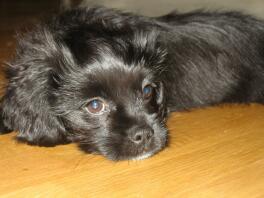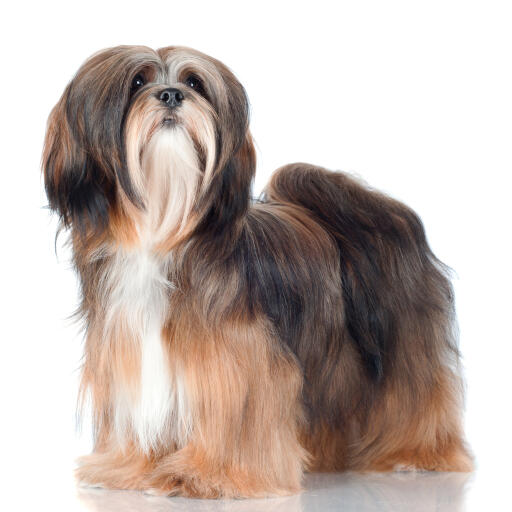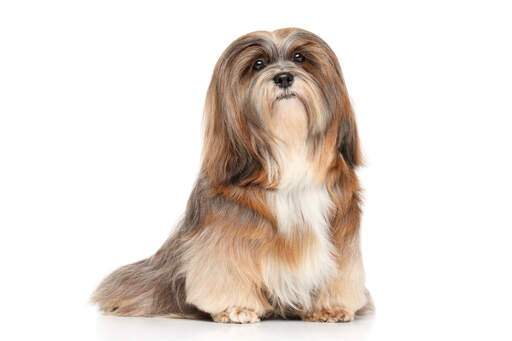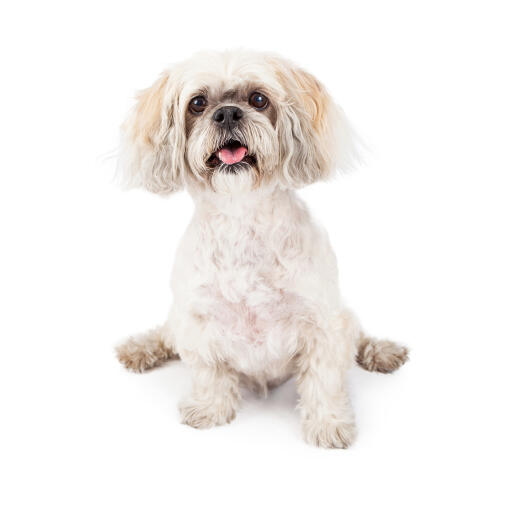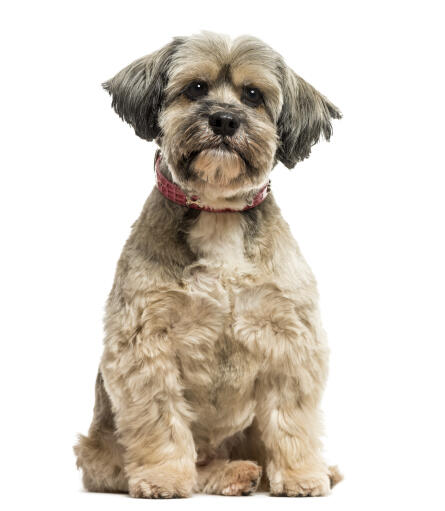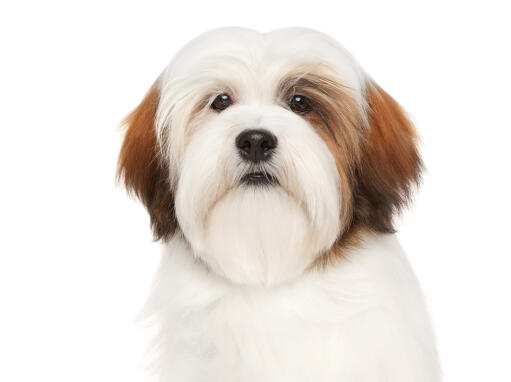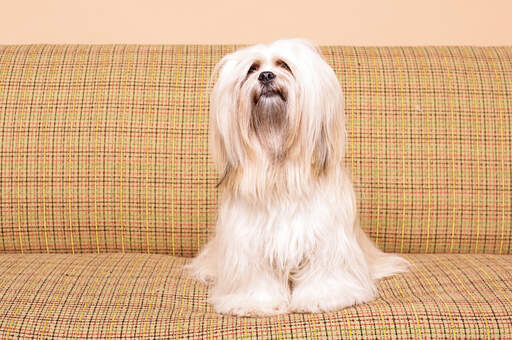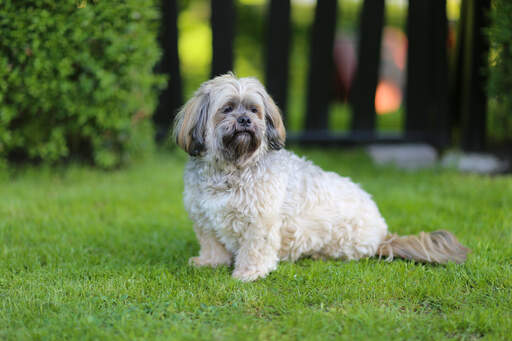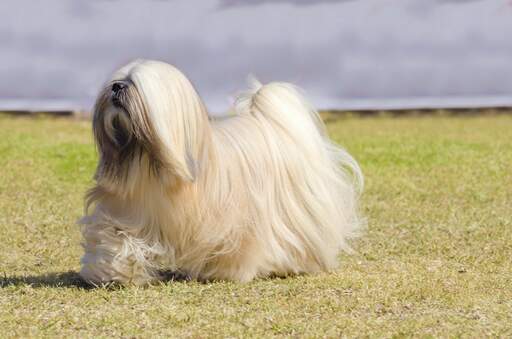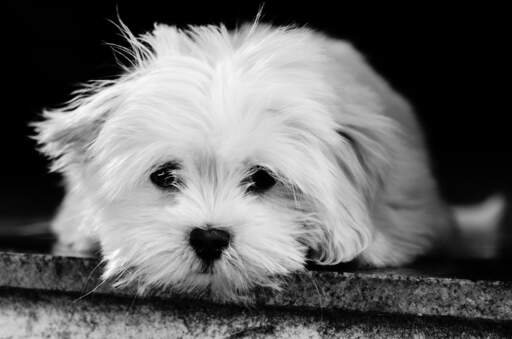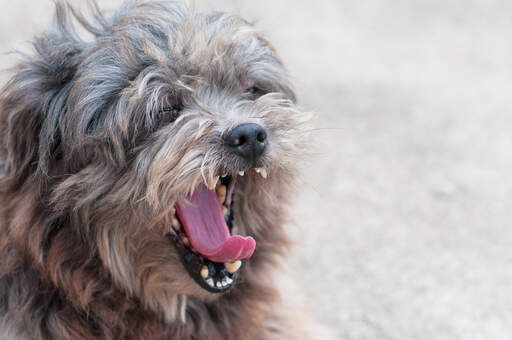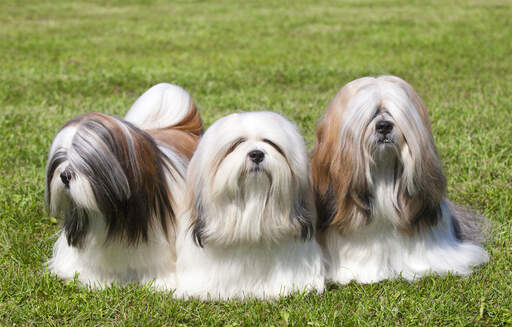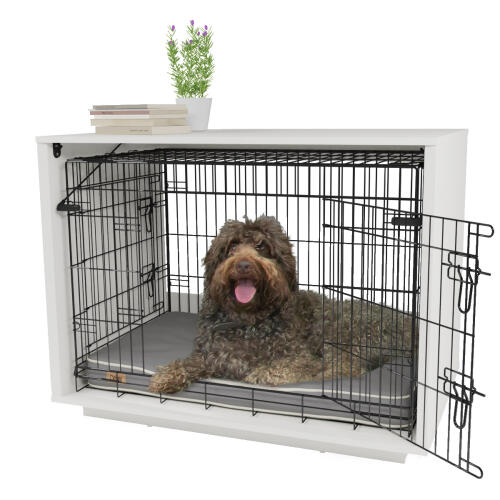Lhasa Apso Dogs











History
The Lhasa Apso is a smallish breed that originates in Tibet. It was bred as a guard dog for Buddist monasteries to alert the Monks of intruders. Lhasa is the capital of Tibet and Apso translated into English means 'bearded'. The timeline for the breed is unknown, but they have been around for thousands of years. They were domesticated and actively bred as long ago as 800 BC, making them one of the oldest recognised breeds.
Behaviour
Lhasas are a fearless and alert breed, always on the look out, with one ear tuned to listen. They have a good sense of hearing and a decent bark for their size. Due to their breeding, they have a natural wariness of strangers and only tend to bark when they need to. They mature quite slowly and can act like puppies for the first three years or so, but as a breed they are curious, full of energy and fun to have around. Lhasa Apsos are an intelligent breed, though they can be stubborn and often try to get their own way. Training needs to be firm and consistent in order to keep this dog in line. Saying that, they are very loyal to those around them and totally devoted to you. Training does take time and patience but is also fun and rewarding. Due to their independent nature, they seem to be fine left alone for short periods and are happy with just a short walk every day. They like to sit up high on the sofa, so they can see what is going on around them, but are just as happy sat on your lap for a cuddle.
Grooming is usually minimal for Lhasas as they have a double coat. Only the undercoat sheds once a year, the outer coat doesn't so they are quite good for allergy sufferers. Trimming once a year and brushing a few times a week should keep the coat looking good. Lhasa Apsos are a hardy, healthy breed, but sometimes do suffer from eye trouble. PRA (Progressive Retinal Atrophy) can cause blindness, however they seem to cope remarkably well with only hearing and smell.
Temperament
Lhasa Apsos have a hardy and strong willed temperament. Very tough for a little dog the Lhasa demands respect and you will need to provide regular enforcement of house rules in order to get respect back. Lhasas do not trust strange things, strange people, strange animals or strange dogs. In short you are signing up for a loyal companion who will be well mannered around the house but won't be very adaptable to new situations.
Health Problems
Health problems that may affect Lhasa Apsos include chondrodysplasia (a type of bone deformation), brachycephalic syndrome (breathing problems), renal dysplasia (a lethal kidney disease for which it is possible to be DNA tested), allergies and luxating patella (dislocation of the knee cap).
Breed Details
- Status: Common
- Life Expectancy: 12 - 14 years
- Weight: 6.4 - 8.2 kg
- Height: 10 - 11"
- Rare: No
- Coat: Long - Double
- Grooming Requirements: Everyday
- Town or Country: Either
- Minimum Home Size: Flat
- Minimum Garden Size: No Garden
- Breed Type: Companion Dog
- Size: Small
- Energy Level: Medium
- Exercise Required: Up to 30 Minutes
Lhasa Apso Pictures
